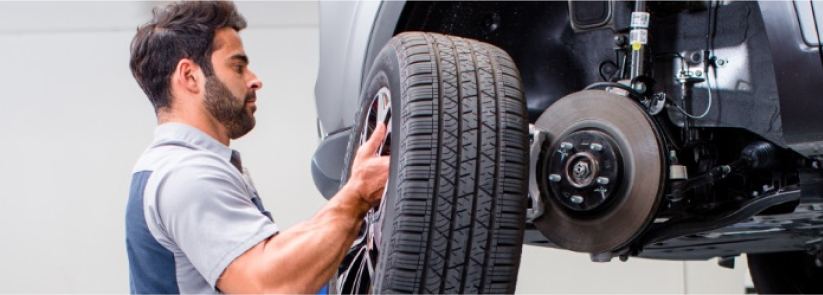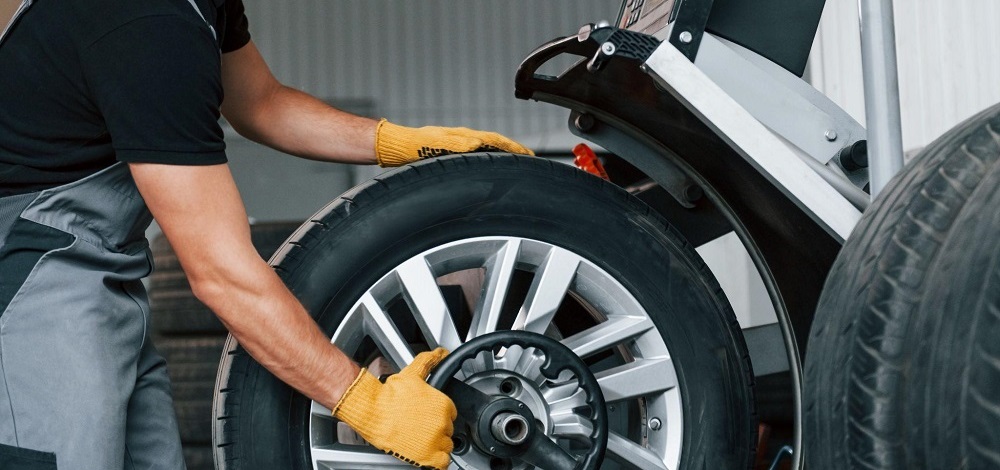Obtain Road-Ready with Expert GMC Tires Service at Morris Tires
Obtain Road-Ready with Expert GMC Tires Service at Morris Tires
Blog Article
Tire Solution: The Impact of Weather
When it pertains to making certain optimal performance and security when traveling, recognizing the influence of weather on tire solution is critical. From scorching heat to icy roadways, each weather element can substantially affect tire functionality and overall driving experience. By diving into the effects of varying weather on tires, drivers can gain important insights that may enhance their vehicle's performance and longevity. In this discussion, we will certainly check out the detailed partnership in between climate conditions and tire solution, losing light on the significance of weather-specific tire maintenance practices and considerations.
Warmth and Tire Performance
When exposed to heats, tires experience changes in efficiency that can considerably influence car safety and handling. The heat created from prolonged driving or hot weather condition problems triggers the tire rubber to soften, bring about reduced walk life and raised wear. As the rubber ends up being softer, the tire's grip when traveling reduces, impacting braking distances and total traction. In severe situations, excessive warmth can also create tire blowouts, positioning an extreme safety danger to the lorry and its residents.

Cold Climate Impacts
Cold climate problems can have a substantial effect on tire efficiency and safety. In cool weather, tires may likewise shed air pressure much more quickly, which can impact managing and gas performance.
To alleviate the results of cold weather condition on tires, it is important to on a regular basis inspect tire pressure and inflate them to the producer's recommended degrees. Utilizing winter or all-season tires developed for cool weather condition problems can also improve traction and grasp on icy or snowy roadways. Correct tire upkeep, consisting of regular inspections for wear and damage, ends up being also a lot more essential throughout cooler months to make certain ideal efficiency and security.
Rainy Conditions Effect
Tires with worn-out treads are extra vulnerable to hydroplaning, where a layer of water constructs up between the tire and the roadway surface area, leading to loss of grip. To combat this, vehicle drivers should routinely examine their tires for ample step deepness and take into consideration spending in tires specifically designed for damp conditions.
Furthermore, wet climate can additionally reduce visibility, making it testing for drivers to see the road in advance clearly (GMC Tire Service). In such problems, it is necessary to change driving speeds appropriately and preserve a risk-free following range to allow for unexpected stops. Effectively inflated tires can additionally help in preserving control on wet roads by offering much better handling and grasp
Snow and Tire Safety
Snow-covered roads gmc tire service position special obstacles useful reference for drivers, stressing the significance of correct tire choice and maintenance. When driving in snowy conditions, having the appropriate tires can make a significant distinction in security and efficiency. Winter tires are created with unique rubber compounds and step patterns to give better traction on snow and ice contrasted to all-season tires. The deeper footsteps and sipes of wintertime tires aid grip the roadway better, minimizing the danger of sliding and sliding.

It is important to follow supplier directions when setting up and making use of tire chains to protect against damages to the tires and car. By selecting the right tires, keeping proper inflation, and taking into consideration extra traction help like tire chains, chauffeurs can enhance their safety and security when browsing snow-covered roadways.
Weather-Related Tire Maintenance
Weather-related tire maintenance incorporates an array of methods aimed at making certain optimum tire feature and long life in different climate circumstances. One crucial facet of weather-related tire maintenance is tire pressure regulation. Inspecting tire step frequently and replacing tires when walk wear gets to a specific depth is crucial for maintaining grip and security in adverse climate.
Verdict
To conclude, climate condition have a considerable influence on tire efficiency and safety. From warm affecting tire pressure and use to winter decreasing grip, it is important to think about the climate when keeping and using tires. Rainy problems can decrease hold and result in hydroplaning, while snow can boost the threat of crashes if tires are not appropriately geared up. Weather-related tire maintenance is crucial in guaranteeing ideal performance and safety when traveling.
In this conversation, we will certainly explore the elaborate relationship between weather condition problems and tire service, dropping light on the value of weather-specific tire maintenance methods and factors to consider.

Report this page